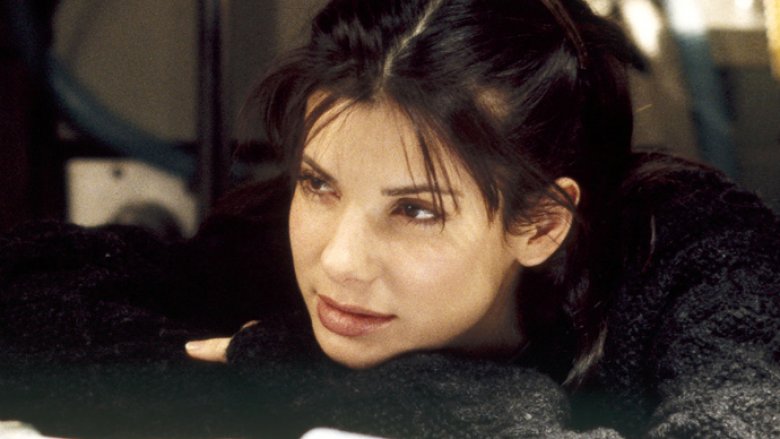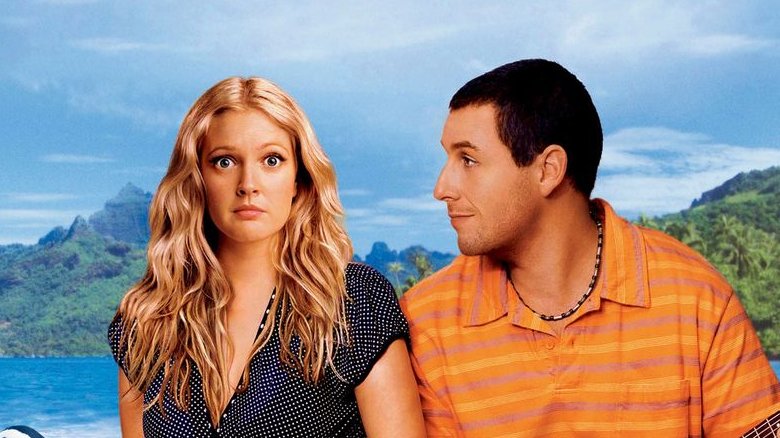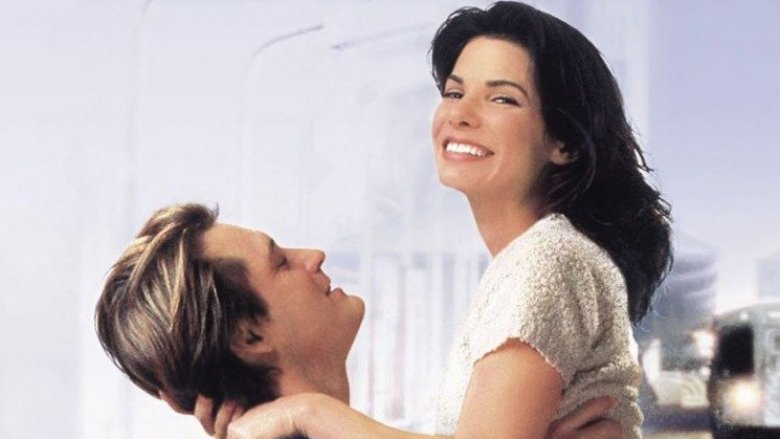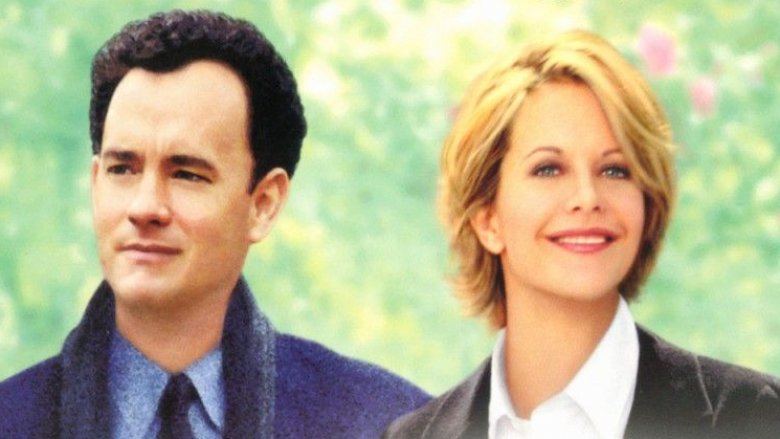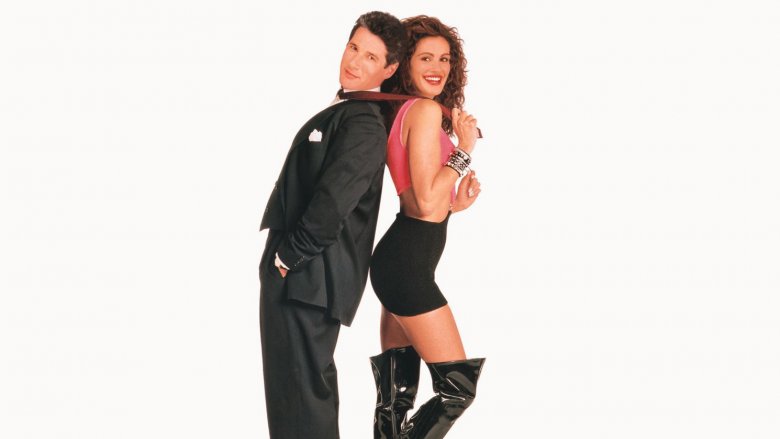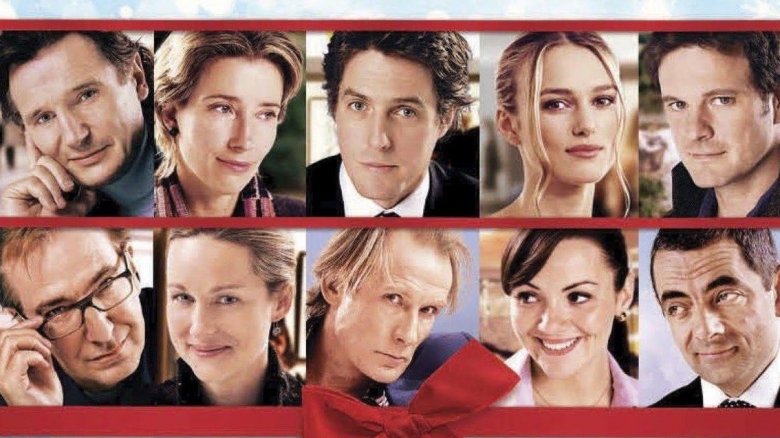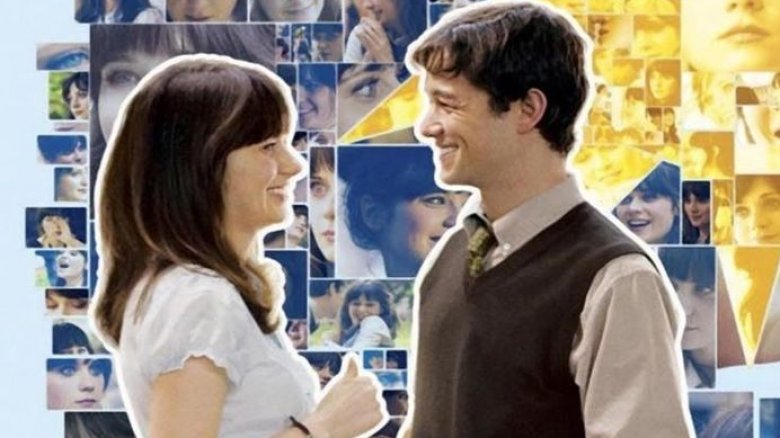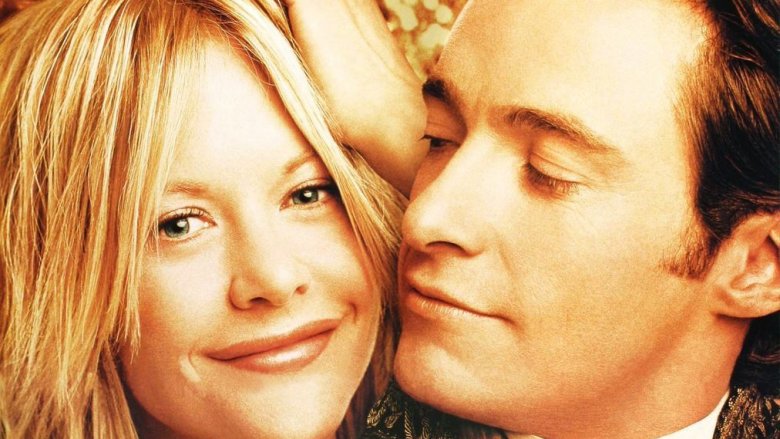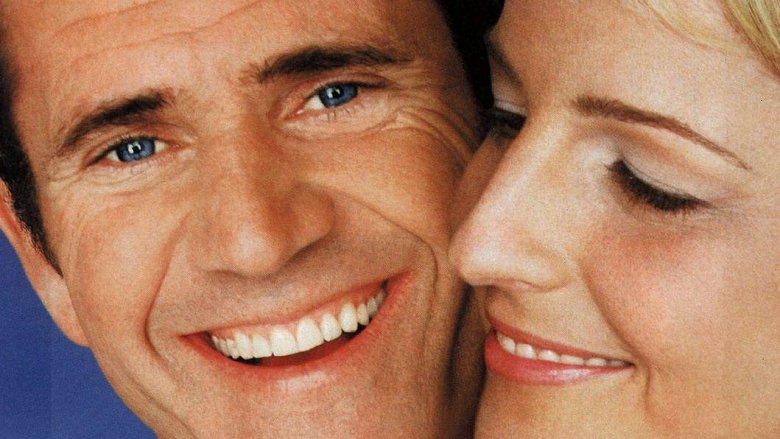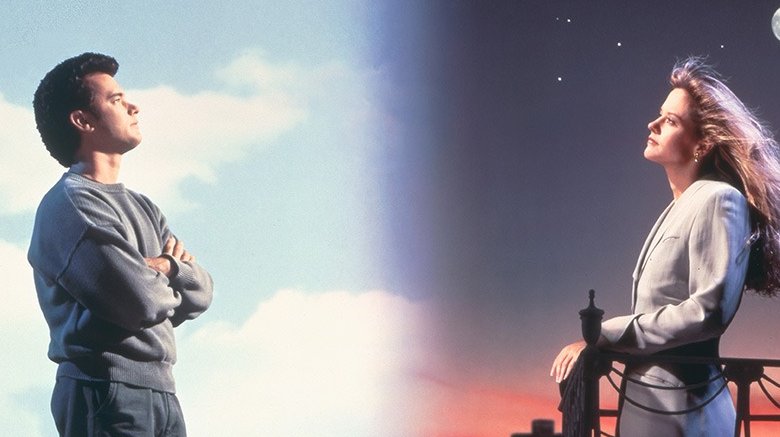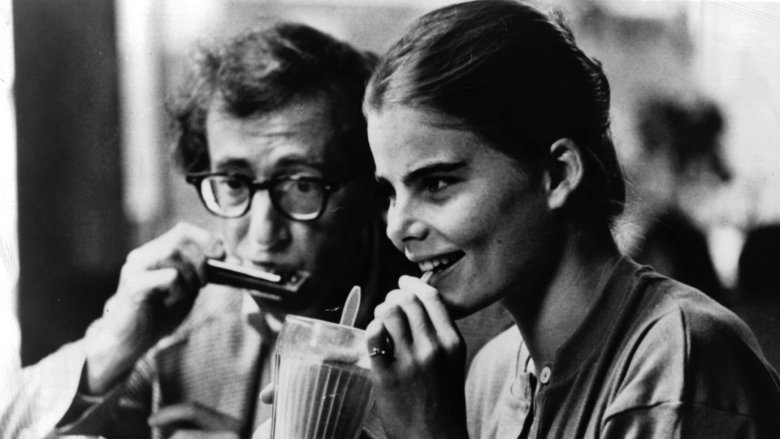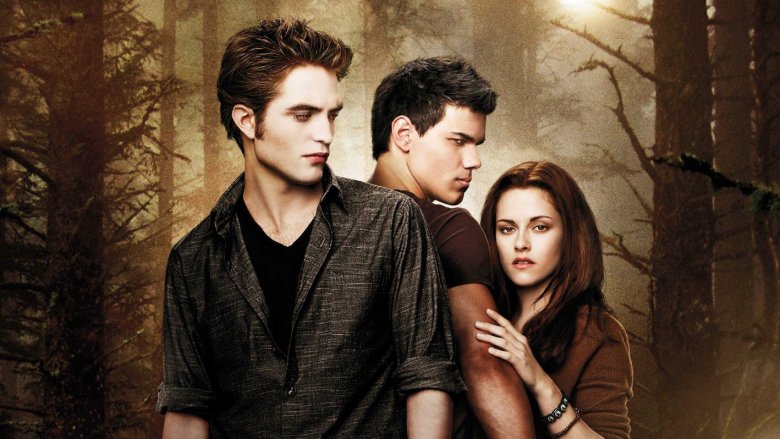The Most Messed Up Romantic Movies
Springtime is the most romantic time of the year. The flowers begin to blossom. The groundhog has either seen his shadow or dramatically ignored it for personal reasons. The petrified, exhaust-saturated snow berms on the sides of the roads have started their annual thaw, bringing mummified pigeon corpses, sad fast food wrappers, abandoned syringes, and the promise that Valentine's Day is just around the corner.
Heart-tugging as all of that is, the promise of love can also be unseemly. At the shallow end of its imperfections, affections might be unrequited. For more unsettling fare, we'd invite you to turn to the debauched and macabre world of romantic cinema.
Popular love stories have never been beloved for their realistic portrayals of relationships, so it's easy to blur the line between a goofy premise and full on butterscotch lunacy. Here are a few of the times when romantic movies crossed that border in major ways.
50 Worst Dates
It's the strangest thing, but Adam Sandler movies have somehow gotten easier to mock the less they've featured him saying "uh-scabbedy goosh." Somewhere between Billy Madison and Grown Ups 6 lies 2004's hit romantic comedy 50 First Dates.
As happens all too often in Happy Madison productions, Adam Sandler (Henry) meets Drew Barrymore (Lucy) and sparks get to flying. Bad news, though. After incurring a brain injury the previous year, Lucy suffers from anterograde amnesia: She wakes up every day thinking it's the day of the accident, and she hasn't been able to create new memories since the year before, presumably explaining why she's still willing to be seen in public with Sandler after Little Nicky.
Lucy's friends beg Henry not to pursue her. Lucy's family pleads with him to leave this poor girl alone. But by the time the credits roll, he's turned them all around with his childlike charm and his stalwart willingness to edit VHS tapes by hand. An indeterminate amount of time later, he's taken her to Alaska on his research boat and the two of them have a child together.
If the inability of a person with that sort of brain damage to consent to those sorts of long-term, life-changing plans doesn't seem like an emotional nightmare, imagine the very real David Cronenberg body horror scene that we missed when an unsuspecting woman woke up suddenly nine months pregnant and going into labor.
While You Were Creeping
Plenty of memorable Machiavellian villains have graced the silver screen over the years. There was Daniel Plainview with his yearslong plot to drink another man's milkshake. Keyser Soze burned the crew of a cargo ship just to protect his own anonymity. But no monster, no demon, no creature of the night has ever been as nefarious as Sandra "culturally mandated Bird Box reference" Bullock in While You Were Sleeping.
Bullock plays Lucy Moderatz, a moderatzly lonely transit station attendant with a crush on a guy who passes her booth every day. It's important to remember that this is as far as their relationship goes if you want to contextualize this next part: When the guy gets mugged and knocked unconscious, Lucy casually mentions at the hospital that she's the man's fiancee in the hopes of being closer to his comatose body.
A merry mix-up unfolds. Lucy leans into the lie, infiltrating the family of her fake betrothed through chicanery and a distinctly sociopathic lack of morality. When the man wakes up with no memory of her, rather than come clean, she lets the folks believe he has amnesia. Happy ending, though. Lucy falls in love with the man's brother, who's remarkably cool about the whole "you grifted my family" aspect of their interactions.
Sometimes, love isn't simple. Sometimes, love is convincing a man that he has severe brain damage while gaslighting his family and keeping his brother on the back burner for in case things go sideways.
You've Got Fail
You know, it's odd to think about, but a pretty substantial number of the world's most famous love stories revolve around one person lying to another person until they start making out. Exhibit A: You've Got Mail.
Set way back at the turn of the millenium, when the internet still came on CDs in the mail and made startup noises like you a digital lawnmower (ask your parents), You've Got Mail was the last hurrah of the great Meg Ryan/Tom Hanks zeitgeist. Hanks and Ryan come from two different worlds: Hanks runs a very large bookstore, while Ryan runs a smaller bookstore. The big bookstore is poised to overwhelm the smaller bookstore. This is the cutthroat business one must expect when one peddles the works of Rowling.
Unbeknownst to Meg Ryan but very beknowst to Tom Hanks, the man responsible for her company's impending doom is also her anonymous modem-based pen pal. They have experienced a romance of the minds, a romance which Hanks continues to pursue surreptitiously when he realizes he's about to destroy this woman's life.
Synopsis: Lots of romantic movies are built around one of the characters telling a big lie, but most of the time that lie doesn't involve destroying your romantic quarry's livelihood by running the store their mother left them out of business.
Pretty (much the worst) Woman
We give you, dear reader, Richard Gere as he is presented to us in 1990's Pretty Woman. Wealthy, successful, and he looks like Richard Gere circa 1990's Pretty Woman. Darn it all, though, he can't seem to find that special someone. But "love," as they say, "is often in the last place you'd expect." And no, that's not a setup for a line about the gerbil aisle at PetSmart (ask your parents.) No, we're talking about something much more wholesome: prostitutes.
Look, nobody here is arguing in favor of a more puritanical world. It's just that it's inherently deranged to think that the life of a career call girl would be fundamentally changed by one week as a classier, more highly paid call girl. It's a perspective-changing job with some intensely upsetting aspects, and we're presented with the Disney princess version of it because, well, technically this is a Disney movie. They're not famous for giving you life's nitty gritty.
We're not saying it would've been a better movie if Julia Roberts had spent the majority of it detailing the literal horror show that is being a sex worker, we're just saying it would've been ... yes, we are saying that.
Love Actually (isn't all it's cracked up to be)
As we were told during the iconic first moments of the film's narration, "love actually is all around." It's in the communication-free assumption that you and your housekeeper are irrevocably enamored with each other. It's in the child running past dozens of armed, post-9/11 airport security agents. It's in that (profanity redacted) Mariah Carey song.
It is also, without a doubt, in the heart of Rick Grimes as he, quite romantically and quite wordlessly videotapes his best friend's wife and makes a supercut of the footage in his apartment, for what purpose we can only guess while holding our faces in our hands and slowly shaking our heads.
When the object of his affections, portrayed by Keira Knightley, notices that her husband's pal is making lonely boy fan videos, she pretty reasonably nopes right out of there. Most lighthearted stalking would probably end at about this point, but darned if Grimes doesn't show up at the home of Knightley and her husband with a stack of platitude-covered poster boards like a charmingly obsessive human teleprompter. Knightley goes to mouth town on his mouth for a second, and Grimes grinningly asserts that that's all over now.
Except it's not over. Those two crazy kids have an entire adulthood of super awkward friendly get-togethers to look forward to, and let's be honest, probably a mid-thirties drunken weeping admission or two to boot. So, you know. Happily ever after. There's a sequel here, but it should just be left to the imagination.
500 Days of Bummer
2009's 500 Days of Summer had all the earmarks of a next-generation romantic comedy, what with its indie soundtrack and its Zooey Deschanel. As it turned out, it was more of a Hall and Oates-backed, Annie Hall-adjacent reminder of everything that can go wrong when you embark on a new relationship. Like in any contentious breakup, it was hard to know which party to blame.
...except it wasn't. You should blame Joseph Gordon-Levitt's character. Because you know who blames Joseph Gordon-Levitt's character? Joseph Gordon-Levitt.
The character, Tom, has a lot going for him, not the least of which is his uncanny resemblance to the kid from 3rd Rock from the Sun. But for all his charm, Tom is a toxic pile of bad decisions and unhealthy expectations. Nearly a decade after the film's release, a fan tweeted her disappointment in Deschanel's character's behavior in the movie, calling it unforgivable. Gordon-Levitt responded by pointing out that Tom was the one who messed everything up. He didn't listen. He was self-absorbed. Not exactly the dreamboat that a generation of bangs enthusiasts made him out to be.
Kate & Leopold (& dying of measles)
A cynical person might say that the concept of movie romance is fantasy enough on its own, but filmmakers love to throw in even more magical elements now and then, maybe as sort of a storytelling duck blind to disguise the fact that forever love died after Vietnam. Uh ... that could be projection.
Anyway, in Kate & Leopold, the narrative curveball is time travel. Meg Ryan's Kate has given up on dating because modern men lack the romantic qualities of fellas of a bygone era, such as Vincent "Ear Cyclops" Van Gogh or Henry VIII.
Enter Hugh Jackman's & Leopold, a chronologically displaced nobleman from the late 19th century. With his gentlemanly integrity and his, you know, cravat, maybe, he sweeps Kate off her feet. When push comes to shove, she decides to follow him back to the year 1876. Love wins the day, and the world is suspiciously undisturbed by the discovery of a wormhole to another century.
So let's kick this plot down the road a little. Kate, an early 21st-century businesswoman, is headed back about 125 years. Some things that she can look forward to: waiting 45 years for the right to vote, plus another eight years after that for the invention of penicillin. If she and Leopold have kids, either by choice or as a result of the recently passed Comstock laws preventing the distribution of already-shoddy contraceptives, their children will enjoy a historically less-than-awesome infant mortality rate. You know — kooky romance stuff.
What Women Want (hint: it's not Mel Gibson anymore)
"Fewer drunken, racist voicemails, Mel."
All right, now that we've gunned down every fish in that barrel, let's consider What Women Want. It is, inextricably, the story of a man who gets superpowers by getting into the bath with a hair dryer. We're willing to look past that since some of the best literary characters in Western history came to us by way of irradiated bug bites.
Mel Gibson plays Nick. He's a chauvinist pig. He's in good company, though. According to the movie, dudes are just trash by nature, while women are incapable of envy or deceit. Nick says as much in his requisite romantic comedy "what did we learn today?" speech at the end: "A woman wouldn't have screwed over the woman she loved; they don't think that way."
Hear that, ladies? You're better than men because you're incapable of an entire swath of human emotion. And Mel Gibson would know. He saw into your little girl brains. Isn't it romantic?
Sleepless In Seattle (due to very reasonable fear)
Things were different back in 1993. We didn't know what would and wouldn't work. Salt and caramel? Still a dream. Sharks and tornados? Not even a concept. But like the two Lay's executives who bumped into each other carrying biscuits and gravy and a bag of potato chips, Hollywood was about to discover two great tastes that'd taste great together: Tom Hanks and Meg Ryan, the sacred totems of cardigan-covered '90s that white people love.
Hanks plays Sam, a grieving widower whose child is dead set on getting a new mom for Christmas. Ryan is doomed to be that mom, having heard Sam's 20th-century sad-eyed Tinder profile over the radio. She's engaged to a guy who seems perfectly nice, aside from having food allergies, which apparently is unforgivable.
Ryan then does what any reasonable person would do. She flies across the country and follows Hanks and his child from a discreet distance, observing them like Jane Goodall if gorillas had an all-American Midwesty sort of charm. If this seems quirky and heartfelt to you, try watching the scene with the sound turned off and John Carpenter's theme from Halloween playing in the background.
(Mad in) Manhattan
In what kind of a messed-up world would a 42-year-old Woody Allen be allowed to date an underage teenager, you ask, stabbing yourself in the leg just to feel something?
For every chunk of iconic that you get from Woody Allen, there are two heaping scoops of problematic. Let's discuss. Allen has always received acclaim as an auteur filmmaker, making a splash with What's Up, Tiger Lily? and Play It Again, Sam before essentially writing his name into Hollywood history with 1977's Annie Hall.
When it came to his personal life, Allen paved the way for future disgraced comedians in a pretty visionary way. His real-life romances were the subject of plenty of media attention, with the big one being his decision to separate from his long-time partner and hook up with her adopted daughter.
Also worth (nauseously) noting was Allen's relationship with 16-year-old Babi Christina Engelhardt when he was 41. She was a year shy of New York's legal age of consent at the time, and Allen was around 25 years past the age of "what were you thinking?" Why is this important? Because a man in his forties dating a 16-year-old is a whole lot of the plot of Allen's remarkably well-received Manhattan. Classic or not, it's egregiously uncomfortable to watch since that information came to light.
A little twi hardy
Look, there's no way to break new ground making fun of the Twilight series. Nearly 15 years and more than $1 billion at the box office put the films front and center. Then the main characters all had facial paralysis and the filmmakers somehow made vampires too boring for nerds, and the internet's gloves came off. For a while, it felt like ripping on Twilight was a young man's social media bar mitzvah; his way of announcing that he had come of age, put childish things behind him, and was ready to call a YA franchise stupid now.
So an infinite number of monkeys typed an infinite number of snarky posts, and Twilight was approached from every sardonic angle imaginable. And yet it bears repeating: Edward is the world's sharpest-cheekboned 100-year-old. Bella is 17.
For being a "hero," that dude is coming dangerously close to breaking the "one-tenth your age plus seven" rule. Also, if we're going by the High Fidelity guideline of "it's about what you like, not what you are like," then what do these two have in common? By the time your ten-year reunion rolls around, there's a pretty good chance you don't have anything in common with this year's graduating class. Imagine trying connect with a (we can't stress this enough) child from the early 2000s if you were living through World War I at their age. It'd be kind of hard to care about the drama of who got removed from who's MySpace Top 8.
